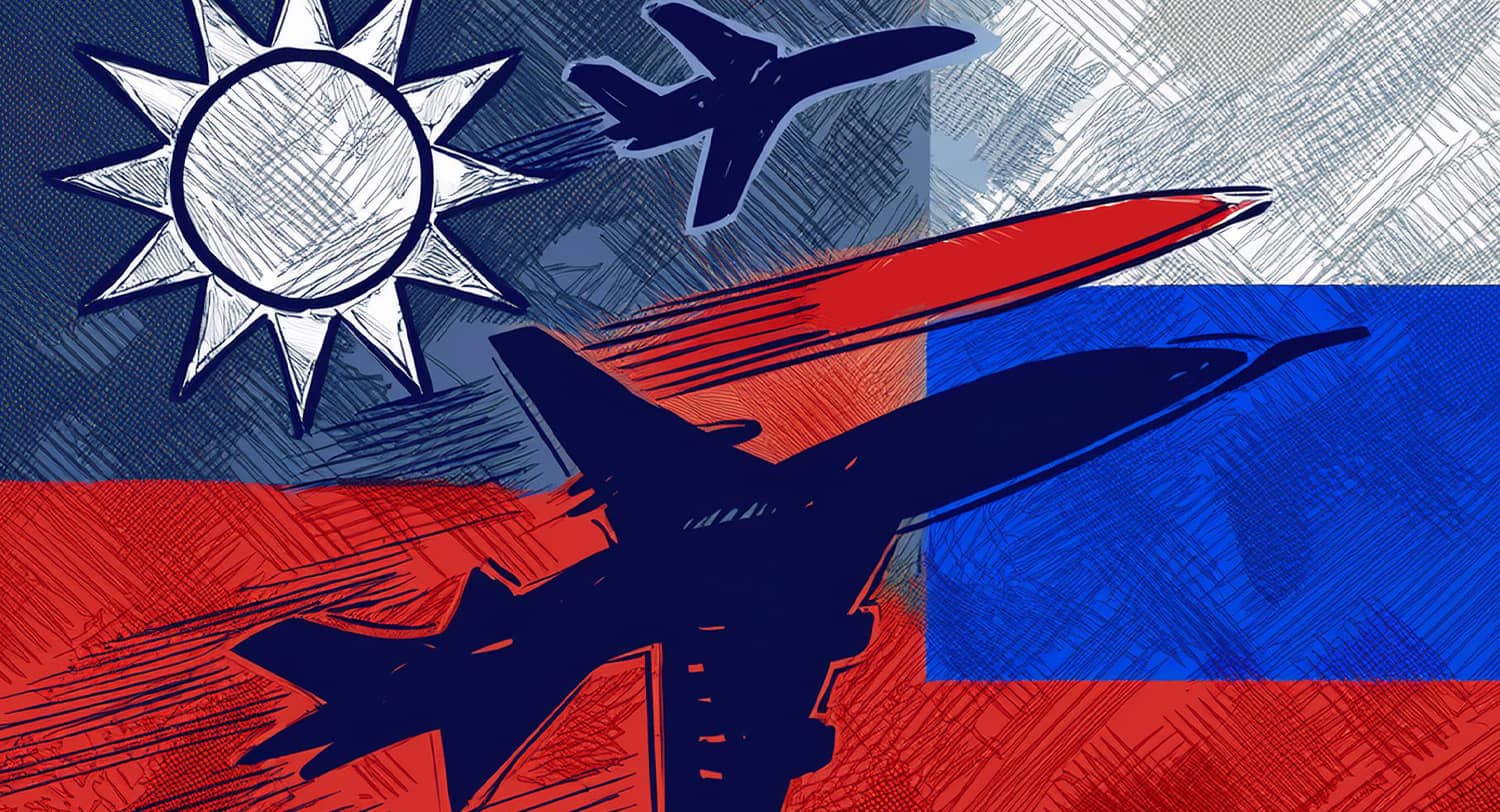When a country’s government enacts sanctions against another country, individual firms in the country are left to determine whether to comply or seek sanctions-flouting workarounds to keep goods and services flowing. This is the reality faced by thousands of firms worldwide that buy from and sell to Russia, the world’s twelfth largest economy by nominal gross domestic product.
Taiwan’s business community is no exception. There as elsewhere bad actors flout international sanctions by exporting goods to Russia via third-countries such as Turkey and Kazakhstan. Taiwan doesn’t have historically deep ties with Russia (unlike for example Armenia). And its government generously supports Ukraine financially. Although Taiwan’s total export value to the Russian Federation reportedly halved to 849 million US dollars in 2022, Taiwan’s exports of military value to Russia remain significant.
Investigative reports published earlier this year by the Washington Post and The Insider & The Reporter revealed that a Taiwanese manufacturer, I Machine Tools, continued to export over 20 million US dollars to Russia in precision manufacturing equipment since January 2023, the month when Taiwan’s Ministry of Economic Affairs placed such items under export controls. Unsurprisingly, from January to October 2023, Turkey became the largest market for Taiwanese-made machine centers, with nearly one-half of all those re-exported to Russia.
Various chemicals (elemental and refined) are exported from Taiwan to Russia. According to a report in July 2024, Russia continues to import from Taiwan silicon wafer plates, fundamental to the production of microchips. In turn, these integrated circuits are key components of Iskander missiles, S-300 SAM launchers, Pantsir SAM systems, and fighter jets, among other military purposes. In 2023, Russia imported 151 million dollars of goods worldwide needed for the completion of such arms and equipment. In this mix is Taiwanese firm Pai Haung Technology selling 2.2 million dollars worth of wafer plates to Russian firm Epiel, whose domestic clients include numerous military enterprises.
Taiwan-manufactured nitrocellulose products also helped to fuel Russian military. Nitrocellulose is elemental for producing smoke-free gunpowder and ammunition propellant. Taipei states that the type of nitrocellulose it exports cannot be used in weaponry, but Russian purchase of Taiwanese nitrocellulose saw a 94 percent increase in the past five years. Taiwan’s government placed it on its list of controlled items in June.
Taipei has undertaken some steps to enforce sanctions on Taiwanese businesses. Following the I Machine Tools scandal, fines for sales to firms on its Entity List (containing over 1,900 Russian military-related organizations) were dramatically increased. It has further required Taiwanese companies to commit to not export to Russia via countries such as Turkey, the United Arab Emirates, and several former Soviet states in Central Asia. Taipei also organizes outreach events to communicate the aim and spirit of the sanctions, the ways to comply, and failures’ consequences.
Then there’s the matter of Russian exports to Taiwan. Taiwan is the world’s fifth largest importer of Russian coal. Since the Russian invasion of Ukraine in February 2022, 3.5 billion dollars worth of Russian coal has shipped to Taiwan. When state power company Taipower discontinued purchases in September 2022, private Taiwanese firms jumped into the market void. As a result, Taiwan’s import of Russian coal rose 31 percent in volume from June 2023 to June 2024. Given the decline in coal prices and increase in global output this increase raises the question: why doesn’t Taiwan buy coal elsewhere?
In addition to coal, Russia has exported to Taiwan over 2 billion dollars in petroleum gas of which 1.3 billion was refined. Similarly, given the Russian economy’s reliance on its abundant natural resources, after coal and gas comes metal exports. Russian aluminum (raw), copper (refined) and semi-finished iron comprised 30 percent of its total export to Taiwan with an estimated value of 1.4 billion.
Stopping sanctions-busting Russia trade is in Taiwan’s self interest. As Taiwan’s Foreign Minister Joseph Wu said in a recent interview, Russian victory in Ukraine “would be seen as a victory of authoritarian states because Russia, China, North Korea and Iran are now linked together.”
The Democratic People’s Party government of President William Lai must muster the political will to effectively enforce its export control systems. While a Russian product or Russian entity may be listed, that is simply a first step. The genuine application of fines, license suspension, and other penalties must be seen by Taiwan’s allies worldwide.
Lax enforcement of Russia sanctions hurts Taiwan in Washington. It provides ammunition to skeptics who ask why we’re supporting Taiwan while its businesses continue to profit off sanctioned trade with Moscow. Washington may further query why Taiwan is not actively searching for other, non-Russian sources of coal, petroleum gas, and metals.
The moment has arrived for Taiwanese firms to fully terminate trade with Russia.

